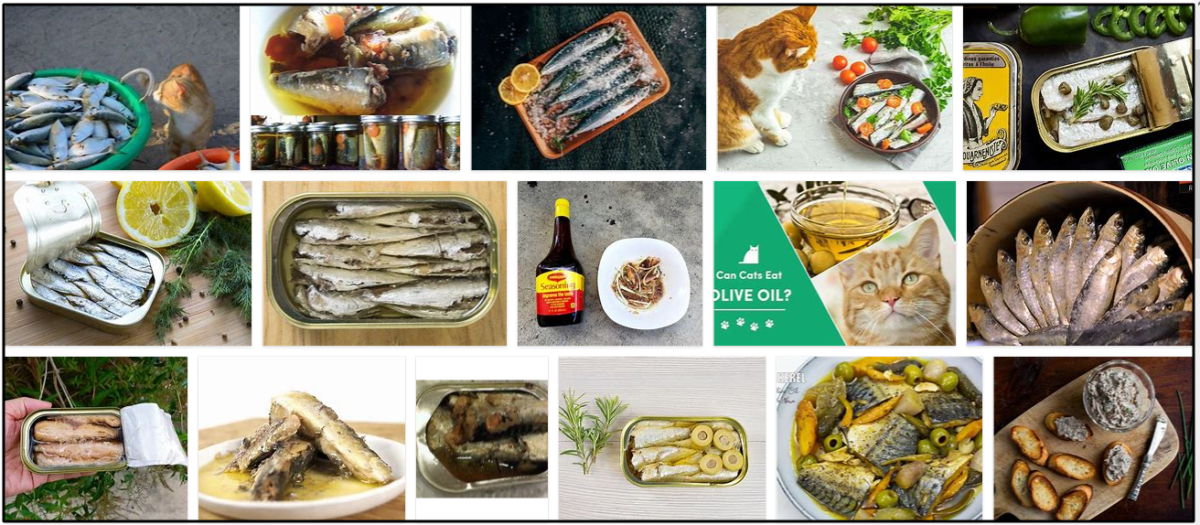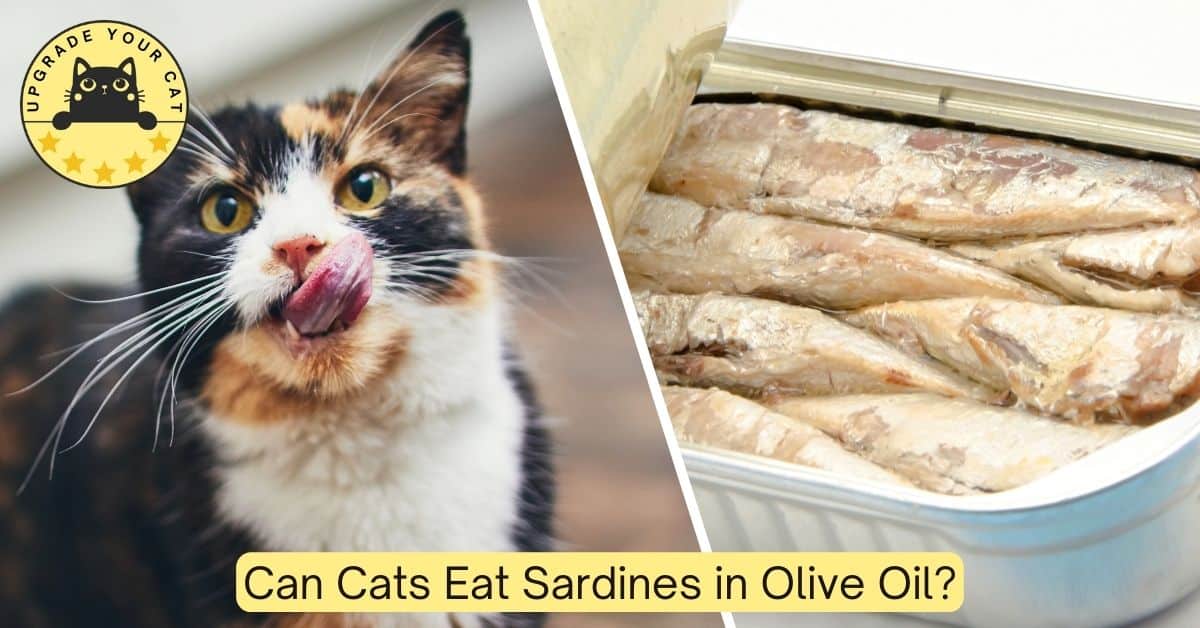Cats are known for their selective eating habits, and as a responsible pet owner, it’s crucial to ensure that the food you offer them is safe and healthy. Sardines are a popular choice among cat owners due to their nutritional value and taste. However, when it comes to sardines in olive oil, you may wonder if it is safe for your feline friend. In this article, we will explore whether cats can eat sardines in olive oil and discuss the potential benefits and risks associated with this food choice.

The Nutritional Value of Sardines
Sardines are packed with essential nutrients that can benefit both humans and cats. They are an excellent source of omega-3 fatty acids, which promote a healthy coat, reduce inflammation, and support brain function. Sardines also contain high levels of protein, vitamins D and B12, and minerals like calcium and selenium. These nutrients are vital for your cat’s overall health and well-being.
Is Olive Oil Safe for Cats?
Olive oil is generally safe for cats in small amounts. It can provide some health benefits, such as improving digestion and promoting a healthy coat. However, it is important to note that olive oil is high in fat and calories. Excessive consumption of olive oil can lead to weight gain and digestive issues in cats. Therefore, it is crucial to offer olive oil to your cat in moderation.
Can Cats Eat Sardines in Olive Oil?
While sardines themselves are safe for cats, the olive oil they are packed in may pose some concerns. The high-fat content of olive oil can be problematic for cats, especially if consumed in large quantities. It is recommended to choose sardines packed in water instead of olive oil to avoid unnecessary fat intake. If you still prefer to offer sardines in olive oil to your cat, make sure to drain the excess oil before serving.
Benefits of Feeding Sardines to Cats
Feeding sardines to your cat can have several benefits. As mentioned earlier, sardines are rich in omega-3 fatty acids, which promote a healthy coat and skin. These fatty acids also support joint health and can help reduce inflammation in cats with arthritis. Additionally, the high protein content in sardines contributes to muscle development and maintenance.
Risks and Precautions
While sardines can be a healthy addition to your cat’s diet, there are a few risks and precautions to consider. Firstly, sardines should only be offered as an occasional treat and not as a regular meal replacement. They should be served in small portions to prevent digestive upset and weight gain. Secondly, ensure that the sardines are boneless and properly cooked to avoid any potential choking hazards or bacterial contamination.
Conclusion
In conclusion, cats can eat sardines, but it is important to be cautious when it comes to sardines in olive oil. While sardines themselves offer numerous health benefits, the high-fat content of olive oil may not be suitable for cats if consumed excessively. It is advisable to opt for sardines packed in water or to drain the excess oil before serving. As always, consult with your veterinarian before introducing any new food to your cat’s diet.
FAQs
-
Are sardines in olive oil safe for cats?
Sardines in olive oil can be safe for cats if offered in moderation. However, it is recommended to choose sardines packed in water to avoid excessive fat intake. -
What are the benefits of feeding sardines to cats?
Feeding sardines to cats can provide essential nutrients such as omega-3 fatty acids, protein, vitamins, and minerals. These nutrients promote a healthy coat, support brain function, and contribute to overall well-being. -
Can sardines in olive oil cause weight gain in cats?
Yes, sardines in olive oil can contribute to weight gain in cats if consumed in large quantities. It is important to offer them as an occasional treat and in small portions. -
Are there any risks associated with feeding sardines to cats?
While sardines can be beneficial, there are a few risks to consider. Ensure that the sardines are boneless and properly cooked to avoid choking hazards or bacterial contamination. Additionally, sardines should not replace regular meals and should be served in moderation. -
Should I consult my veterinarian before feeding sardines to my cat?
Yes, it is always advisable to consult with your veterinarian before introducing any new food to your cat’s diet. They can provide personalized advice based on your cat’s specific needs and health condition.

